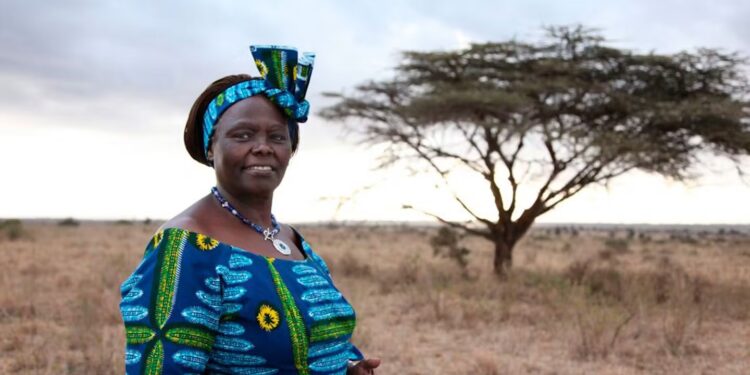Wangari Maathai, the pioneering Kenyan politician, academic, and environmental activist who became the first Black African woman to receive a Nobel Prize, has died at the age of 71. She passed away in Nairobi on 25 September 2011, following a battle with ovarian cancer.
A life of firsts
Born in Nyeri, central Kenya, in 1940, Maathai grew up in a rural farming community before embarking on a path that would make her one of the most influential African women of her generation. She was the first woman in East and Central Africa to earn a doctorate, receiving her PhD in veterinary anatomy from the University of Nairobi in 1971. Her academic career soon evolved into political activism as she sought to bridge science, environmental protection, and social justice.
Champion of the Green Belt Movement
In 1977, Maathai founded the Green Belt Movement, an environmental organisation that promoted tree planting, biodiversity conservation, and women’s rights. Under her leadership, the movement is estimated to have planted over 30 million trees across Africa. Beyond its ecological impact, it empowered rural women by linking environmental conservation with livelihoods, education, and community development.
Nobel Peace Prize and global recognition
Her groundbreaking work gained international recognition in 2004 when she was awarded the Nobel Peace Prize. The Nobel Committee praised her “holistic approach to sustainable development that embraces democracy, human rights and women’s rights.” The award marked the first time a Black African woman had received the prize, establishing Maathai as a global symbol of resilience and visionary leadership.
Political career and defiance
Maathai was also a fierce political voice. She served as a member of Kenya’s parliament and was appointed Assistant Minister for Environment and Natural Resources between 2003 and 2005. She had long opposed the authoritarian rule of President Daniel arap Moi, enduring arrests, physical attacks, and vilification for her protests against deforestation and land grabs in Nairobi’s public parks. Despite resistance, her defiance helped protect key natural spaces and inspired a generation of activists.
Legacy and inspiration
Wangari Maathai’s legacy endures not only in the millions of trees planted but in the principles of grassroots mobilisation, ecological justice, and women’s empowerment she embodied. She demonstrated that environmental activism in Africa could be both a fight for human dignity and a global movement. Her death in 2011 was widely mourned, with tributes pouring in from across the world, including from the United Nations and numerous heads of state.
Today, her work continues through the Green Belt Movement and countless activists who view her as a role model for linking environmental stewardship with social transformation.
REFH – Newshub, 25 September 2025




Recent Comments